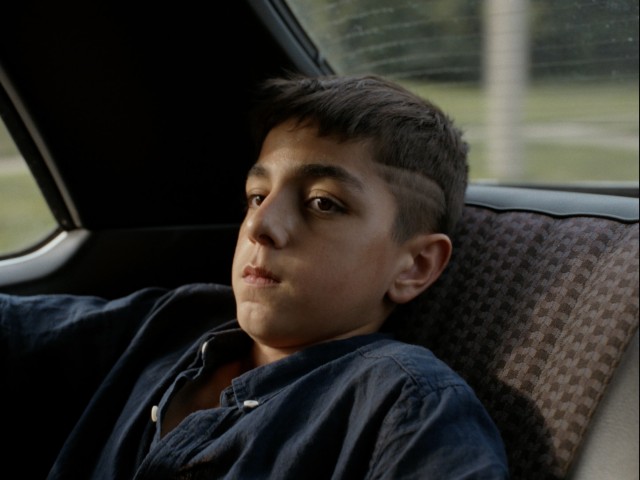It’s the middle of the Summer, and Pejman finds himself at his father’s house. Clueless, the only thing he can come up with to survive this heatwave is to take his son to the public pool. With Sunday, July 31st, writer/director Meysam Motazedi captures a seemingly mundane afternoon that will forever change the complex bond of his protagonists.
“I leave the lingering ghosts of a tumultuous childhood behind”
Motazedi openly shared that the film draws heavily from his own relationship with his father. “Our father was always an enigma”, he explained, adding that he was wasn’t really present “long enough to get a proper reading on the man”. He approached the film as “an exercise in abandonment—with it, I leave the lingering ghosts of a tumultuous childhood behind and finally step out of my father’s ubiquitous shadow”. Although the film is seemingly uneventful on the surface, it gets its potency from everything that is left unsaid between Pejman and his father. Motazedi’s personal approach lends the screenplay an undeniable authenticity, conveying the importance of this afternoon, and how it will change their relationship.
The film is effectively told from Pejman’s point-of-view, with his innocence and lack of judgment injected into the tone of the film. Through his perspective, we get to know his father and the mystery that surrounds him – all Pejman doesn’t know or understand about him. Alongside this, Motazedi also manages to let his audience view how Pejman perceives how his father sees him. Ultimately, this is what’s at the core of the film, how the main characters see and hear each other. There is a certain restraint felt through the screen that immediately echoes the awkwardness between them, which in the end, makes Pejman’s final decision all the more emotionally powerful and freeing.

“I felt the film needed to possess a dreamlike quality . . . it should feel fragmented and meandering” – Motazedi discussing his approach to the production
Working with Kane Stewart, Motazedi and his editor craft a pacing that complements both the fragmented structure of the narrative and Pejman’s state of mind that afternoon. While DP Jeremy Cox constructed his frames by placing the camera at an angle that either recreated how Pejman sees his surroundings or sees himself in his environment.
As previously mentioned, the film is very emotionally engaging and manages to present a fresh take on this type of coming-of-age narratives by focusing on what remains unsaid between the two lead actors: Eyup Kerem Basak and Mehdi Motazedi. The lack of exposition is effective, as it leaves the viewer to piece all the information together. While both actors, with minimal dialogue, are able to convey the bond between their characters and its underlying fractures. By prioritizing the emotions at play, rather than facts, Sunday, July 31st provides us with a greater understanding of their relationship and what leads Pejman to take a stand that fateful afternoon. A turning point that is subtly yet perfectly represented in the last scene.
We’re excited to host the World Premiere of Sunday, July 31st, a student film made during the filmmaker’s MFA at Toronto’s York University, on Short of the Week. Motazedi is currently developing two feature films.

 Céline Roustan
Céline Roustan